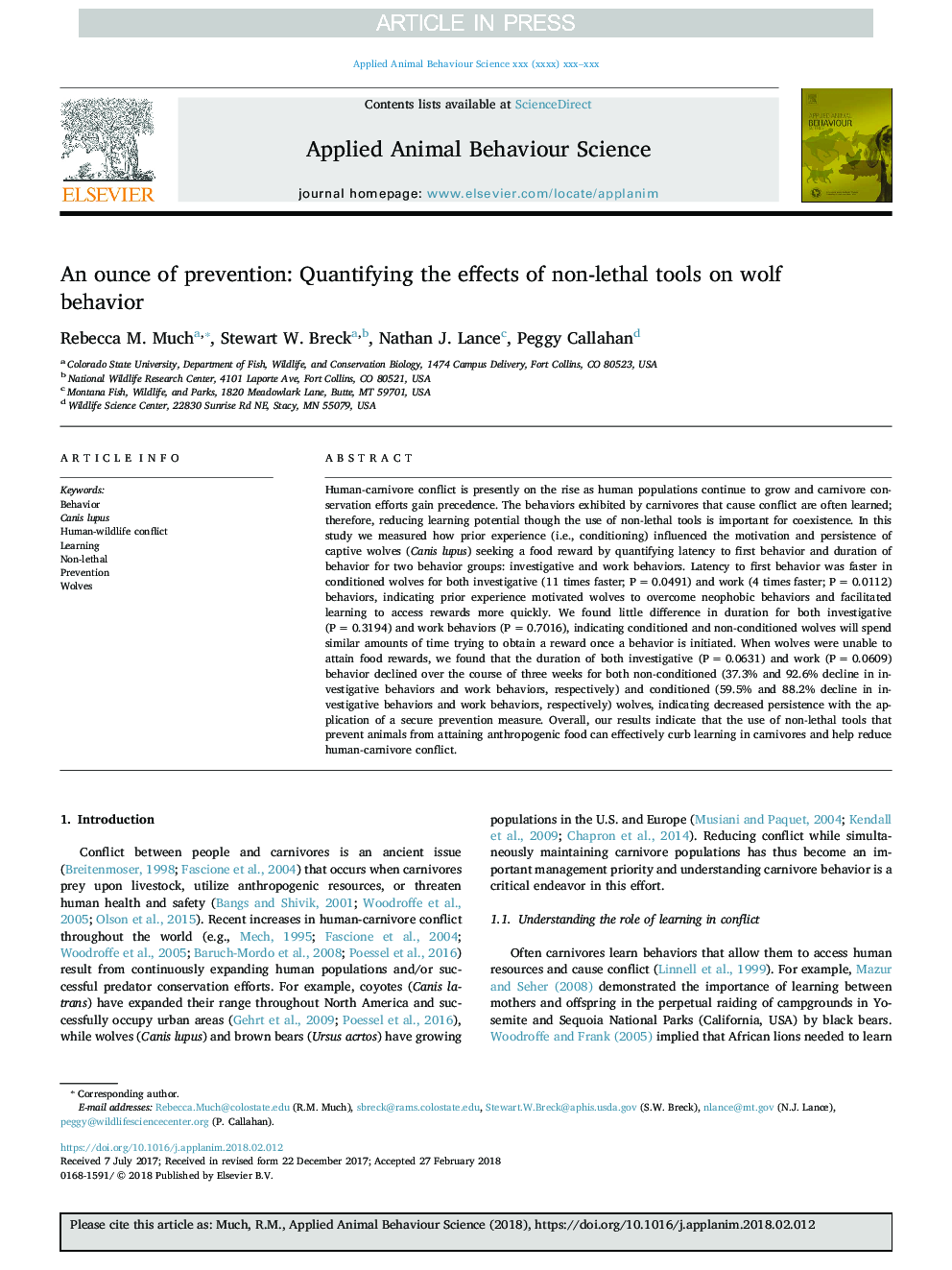| کد مقاله | کد نشریه | سال انتشار | مقاله انگلیسی | نسخه تمام متن |
|---|---|---|---|---|
| 8882776 | 1625303 | 2018 | 8 صفحه PDF | دانلود رایگان |
عنوان انگلیسی مقاله ISI
An ounce of prevention: Quantifying the effects of non-lethal tools on wolf behavior
دانلود مقاله + سفارش ترجمه
دانلود مقاله ISI انگلیسی
رایگان برای ایرانیان
کلمات کلیدی
موضوعات مرتبط
علوم زیستی و بیوفناوری
علوم کشاورزی و بیولوژیک
علوم دامی و جانورشناسی
پیش نمایش صفحه اول مقاله

چکیده انگلیسی
Human-carnivore conflict is presently on the rise as human populations continue to grow and carnivore conservation efforts gain precedence. The behaviors exhibited by carnivores that cause conflict are often learned; therefore, reducing learning potential though the use of non-lethal tools is important for coexistence. In this study we measured how prior experience (i.e., conditioning) influenced the motivation and persistence of captive wolves (Canis lupus) seeking a food reward by quantifying latency to first behavior and duration of behavior for two behavior groups: investigative and work behaviors. Latency to first behavior was faster in conditioned wolves for both investigative (11 times faster; Pâ¯=â¯0.0491) and work (4 times faster; Pâ¯=â¯0.0112) behaviors, indicating prior experience motivated wolves to overcome neophobic behaviors and facilitated learning to access rewards more quickly. We found little difference in duration for both investigative (Pâ¯=â¯0.3194) and work behaviors (Pâ¯=â¯0.7016), indicating conditioned and non-conditioned wolves will spend similar amounts of time trying to obtain a reward once a behavior is initiated. When wolves were unable to attain food rewards, we found that the duration of both investigative (Pâ¯=â¯0.0631) and work (Pâ¯=â¯0.0609) behavior declined over the course of three weeks for both non-conditioned (37.3% and 92.6% decline in investigative behaviors and work behaviors, respectively) and conditioned (59.5% and 88.2% decline in investigative behaviors and work behaviors, respectively) wolves, indicating decreased persistence with the application of a secure prevention measure. Overall, our results indicate that the use of non-lethal tools that prevent animals from attaining anthropogenic food can effectively curb learning in carnivores and help reduce human-carnivore conflict.
ناشر
Database: Elsevier - ScienceDirect (ساینس دایرکت)
Journal: Applied Animal Behaviour Science - Volume 203, June 2018, Pages 73-80
Journal: Applied Animal Behaviour Science - Volume 203, June 2018, Pages 73-80
نویسندگان
Rebecca M. Much, Stewart W. Breck, Nathan J. Lance, Peggy Callahan,